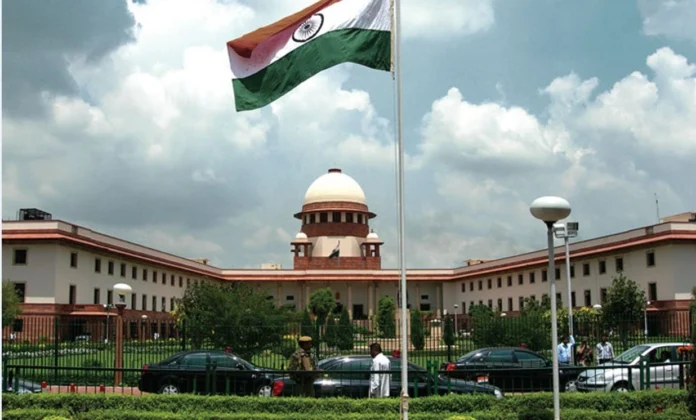By Sanjay Raman Sinha
The Supreme Court bench of Justices JB Pardiwala and R Mahadevan has rescinded its August 4 directions stripping Allahabad High Court judge Justice Prashant Kumar of criminal case jurisdiction until his retirement and mandating that he sit only with a senior judge.
The recall came after the bench received a letter from Chief Justice of India BR Gavai, requesting deletion of the observations and instructions.
“While we delete it, we leave it to the Chief Justice of the High Court to now look into the matter. The directions are absolutely not interfering with the administrative power of the Chief Justice of the High Court. When matters affect the rule of law, this Court will be compelled to take corrective steps,” the bench said, adding: “We must clarify that our intention was not to cause embarrassment or cast aspersions on the concerned judge.”
The reversal followed a letter from seven Allahabad High Court judges to Chief Justice Arun Bhansali, urging a full court meeting to discuss the Supreme Court’s order.
Earlier, Justices Pardiwala and Mahadevan had sharply criticised Justice Kumar for allowing a civil money recovery suit to proceed under criminal law. Calling it a “travesty of justice,” the bench had directed the chief justice of the High Court to immediately withdraw all criminal case assignments from Justice Kumar and reassign him to sit with a seasoned senior judge. “The concerned judge shall not be assigned any criminal determination till he demits office,” the order had read.
The apex court did not mince words: “The judge concerned has not only cut a sorry figure for himself, but has made a mockery of justice. We are at our wits’ end to understand what is wrong with the Indian judiciary at the level of High Court.”
Justice Kumar’s ruling had converted a commercial dispute into a criminal case, citing the complainant’s status as a small company and the delay inherent in civil litigation. The Supreme Court reminded that criminal proceedings are not debt recovery tools and sent the matter back to the High Court with strictures.
Speaking to India Legal, former Supreme Court judge Justice Shiva Kirti Singh said: “The stern action was strong, but without malice. The aim was to correct a misjudgment. However, the shortage of quality candidates from the criminal bar—and the predominance of judges from civil backgrounds—creates expertise gaps that sometimes lead to flawed judgments. Strengthening the criminal bar is essential, as criminal law is deeply tied to Article 21 and human rights.”
It is an accepted constitutional norm that the chief justice of a High Court is the master of the roster and holds exclusive authority over judge and case assignments.
Justice Bhanwar Singh, former judge of the Allahabad High Court, told India Legal: “The Supreme Court can criticise a judge’s lack of knowledge, but restraining him from hearing a certain class of cases is not in harmony with the Constitution.”
Though the Supreme Court does not directly supervise High Courts, it exerts influence through appellate jurisdiction, judicial review, and binding precedents. This case began as a judicial review, but evolved into a set of administrative instructions—raising eyebrows within the judiciary.
The question of overreach harks back to Braj Kishore Thakur vs Union of India (1997), where the apex court warned higher courts against “belching diatribe at judicial personages” and reminded that “a judge who has not committed any error is yet to be born.”
Justice Shiv Kirti Singh added: “The Supreme Court could have instead conveyed its concerns to the High Court’s chief justice, maintaining its sanctity while still addressing the error.”
Justice Pardiwala himself has a history of strong remarks—facing impeachment proceedings in 2015 for comments on reservations (later withdrawn) and criticising Nupur Sharma’s remarks on Prophet Mohammed in 2022. The same bench recently directed timelines for gubernatorial assent to state bills, in a case now under presidential review.
Ultimately, the incident has exposed a deeper malaise—the shortage of high-quality jurists in both High Courts and district courts. The solution lies in merit-based appointments, regular evaluation, targeted training, and diversifying judicial recruitment to include specialised expertise. Without such reforms, the judiciary risks more than embarrassment—it risks public trust.


